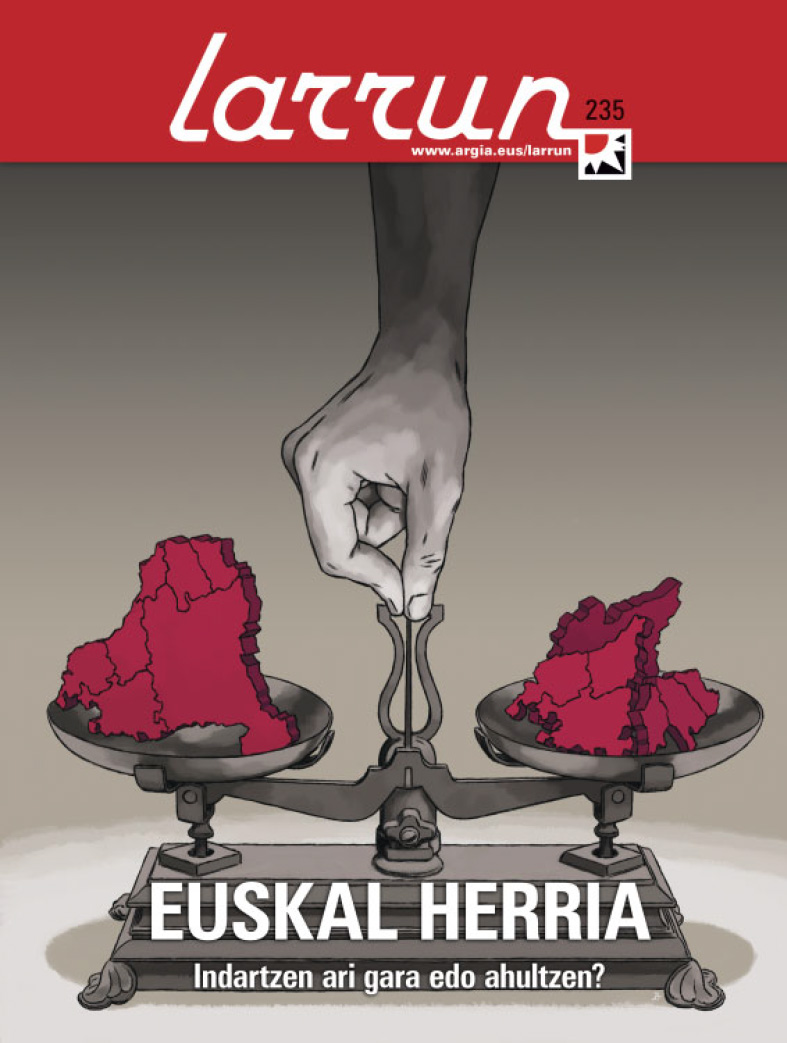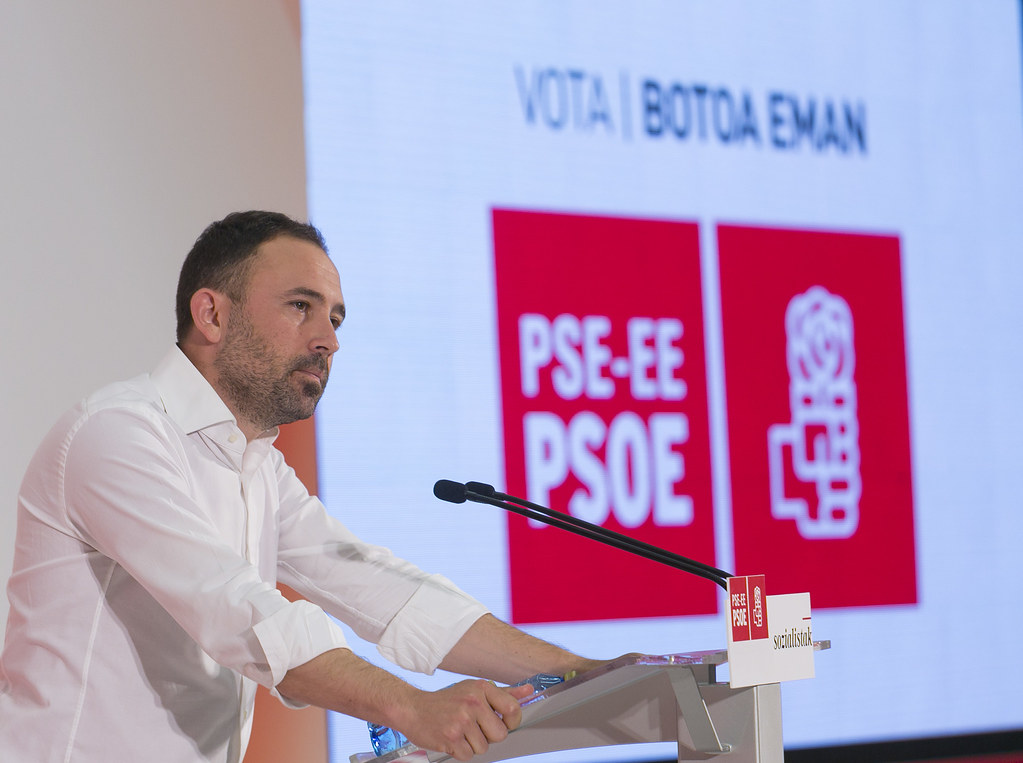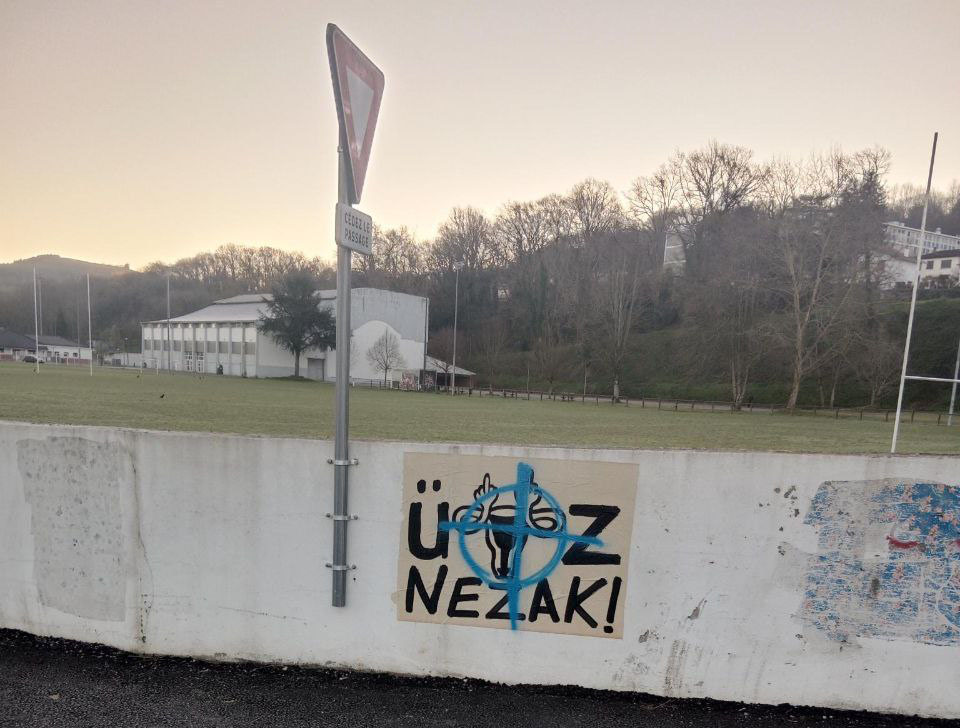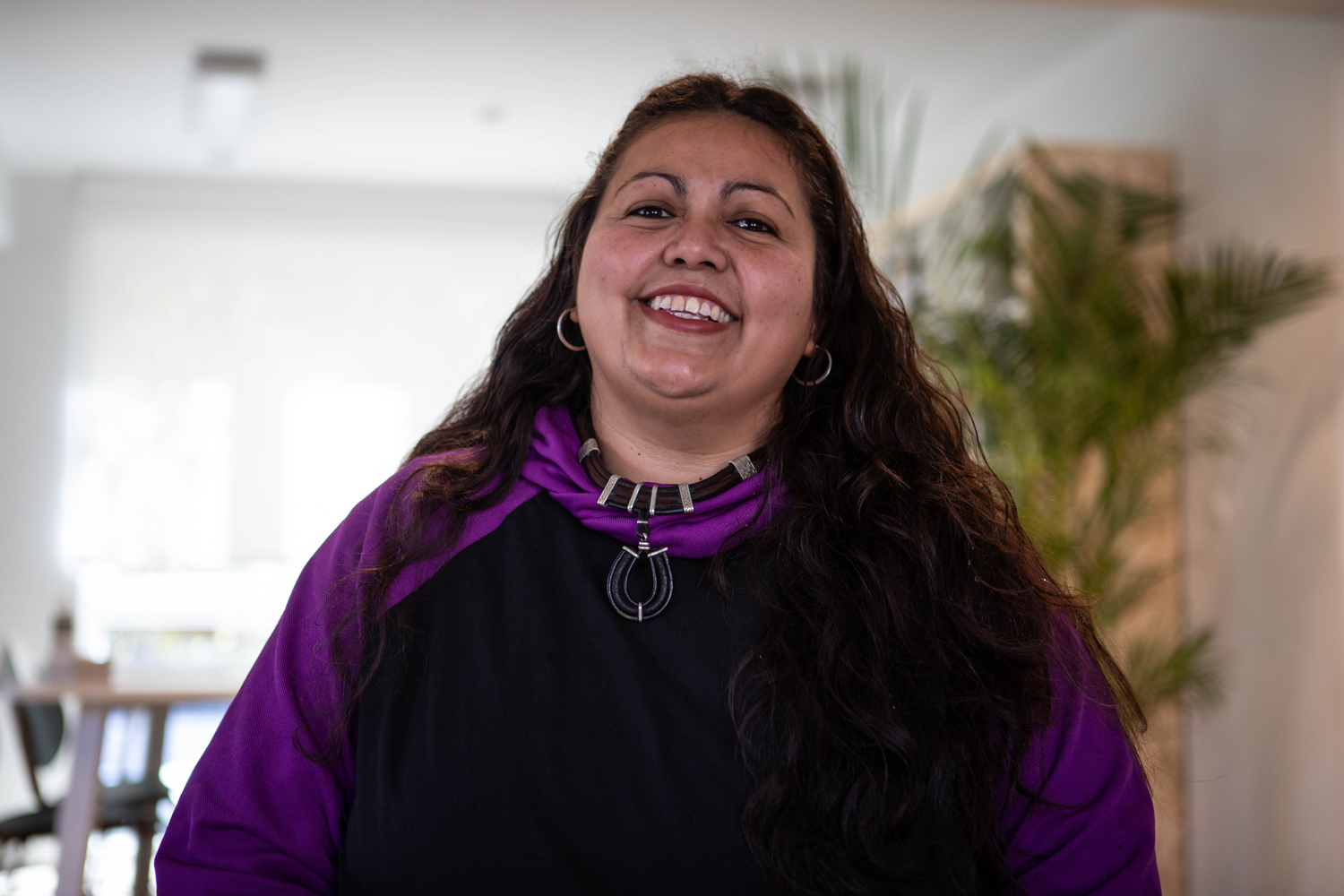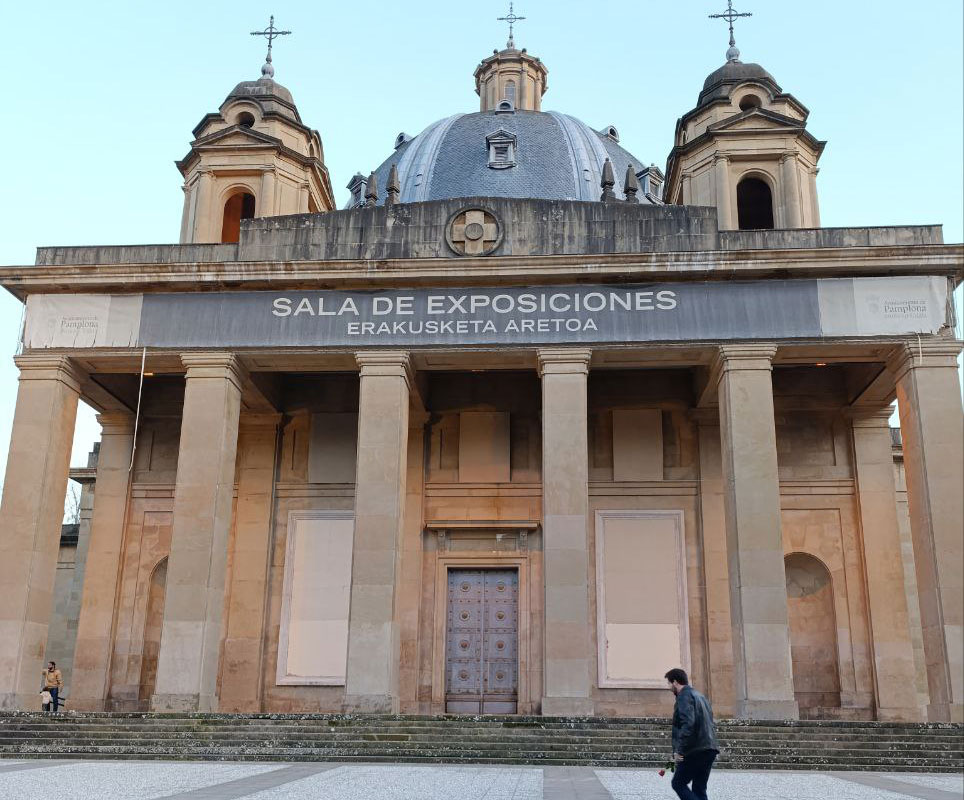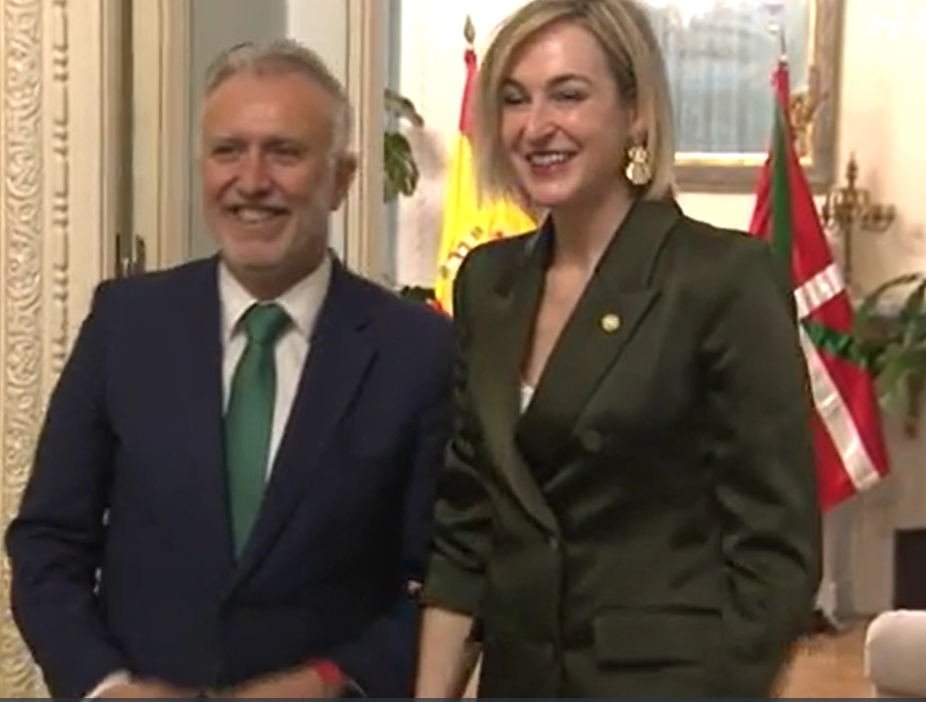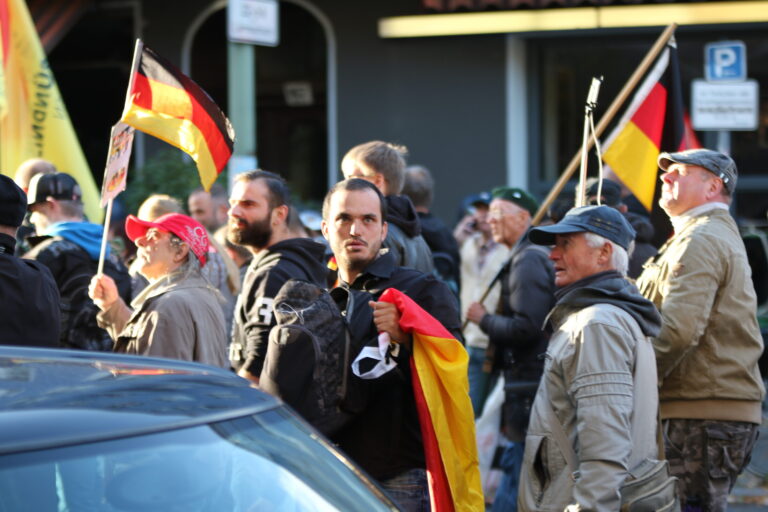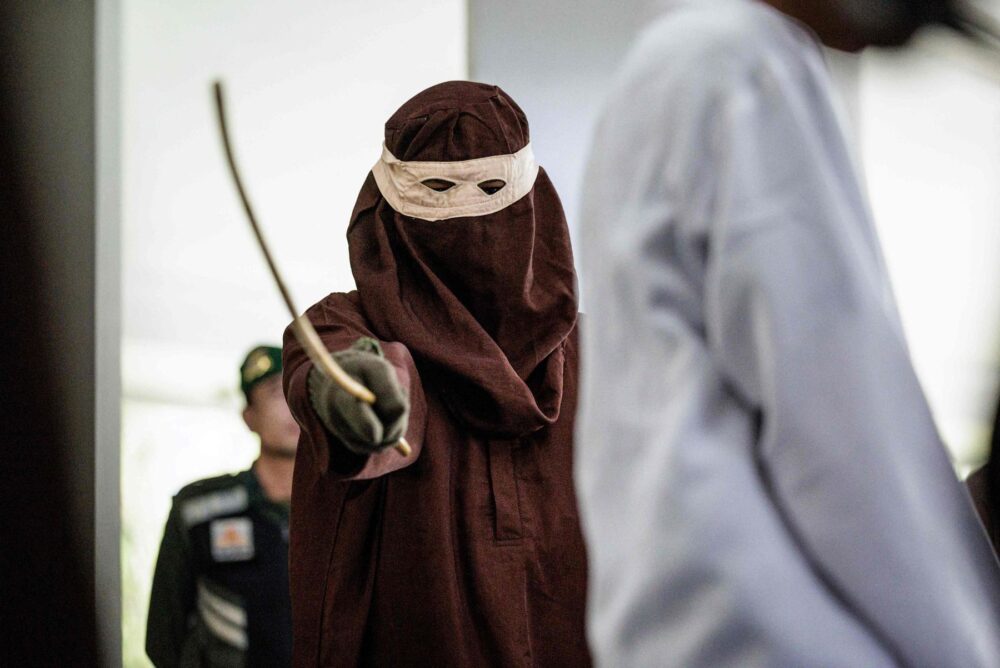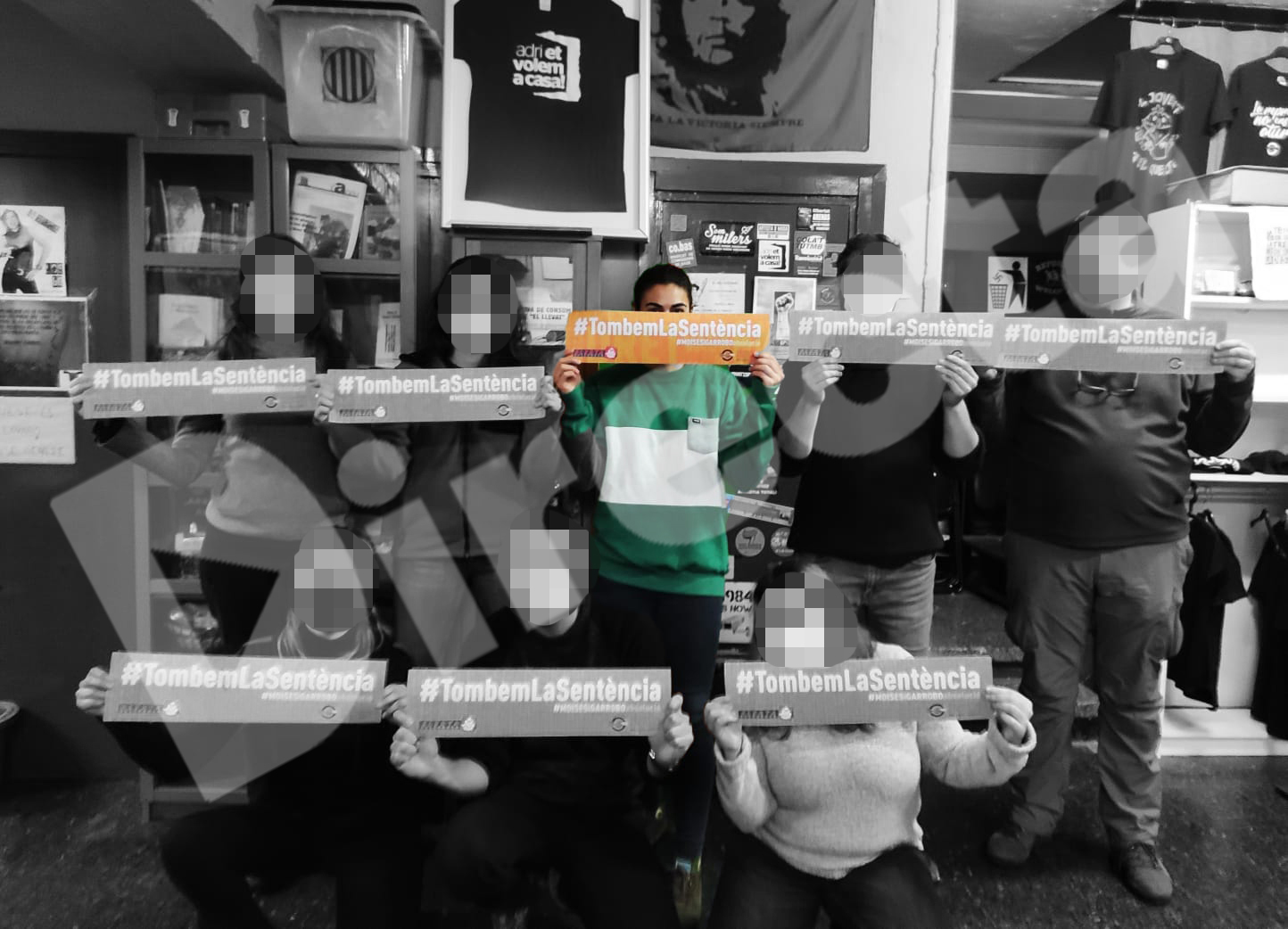"Let us take advantage of the autonomous structures to strengthen and not weaken the Basque Country"
- What is the state of health of the Basque Country? Asking too big questions can lead to grabbing your hands along the way. It was a risk that already existed in this work, and to avoid it, we have resorted to three actors who have recently been concerned about it. Eneko Bidegain has just written the book Lurraldea eta Herria. On the occasion of the centenary, the institution has written the Green Paper on the territory(s) of the Basque Country, in the foreword to the White Paper. Josu Amezaga has analyzed the communication space of Euskal Herria. Joseba Álvarez tells us what a strong Basque community is for Aman Komunak.
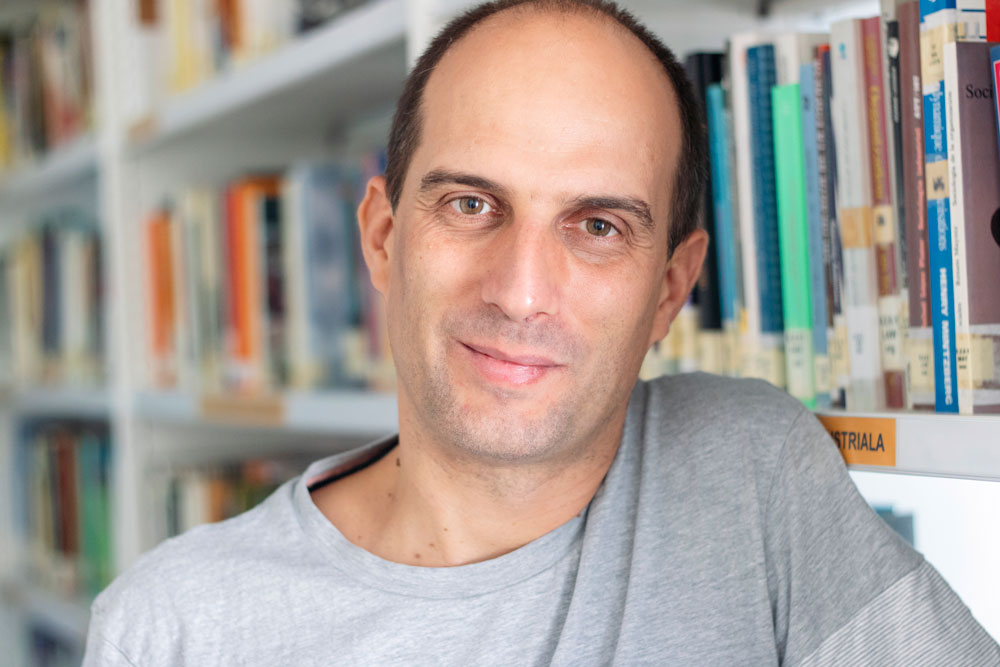
Eneko Bidegain (Baiona, 1975) is a professor of Mondragon Unibertsitatea at Alto Deba. He worked as a journalist in Berria between 1995 and 1999. Territory and population. Seven in the morning. The editorial bilbaina has published the book Gaur, gaur eta bihar in what goes on this year. It considers that the development of the three administrative areas of the Basque Country weakens the character of our people. In his view, in order to strengthen links between territories, it is essential to intensify relations and initiatives between citizens and institutions on a daily basis.
They were institutionalized 40 years ago in the CAV and in the South of Navarra. In these 40 years, has the image of Euskal Herria been strengthened or weakened?
I started with the book because I had that concern. The strengthening of institutionalization has weakened the image of the Basque Country, especially in the last 15-20 years. This division, highly criticized by the nationalist movement for the first 20 years, had no legitimacy. As these spaces of autonomy are strengthened, the Basque Government has assumed the imaginary of Euskal Herria towards the outside. It's also reflected in school books, time maps, statistics and many other things.
And in the first 20 years, why was it stronger?
The Spanish sector and the world of the PNV recognized the division, but it had strong opposition, which has then disappeared and the recognition is wider. There may be a number of things. In the 1980s, the map of the Basque Country, from El Diario Vasco to El Mundo, was more or less respected. That disappeared from the year 2000.
It says that the territories of the Basque Country live on their backs. Why?
It happens in many things of everyday life: in administrative matters, in healthcare, with banks… We are in the European Union but the administrative division has a lot to do. These obstacles are particularly sensitive to people living near the border, for example, because they live on one side and on the other.
In addition, I have this feeling with the students; for example, the Vizcayans are becoming ever more distant Nafarroa Garaia or Ipar Euskal Herria. In general, relations between citizens are deteriorating. Before there was a tendency to go to Lapurdi, now not so much, it seems that there is more fear than in Franco to cross the border.
So if the administrative divisions separate us, would we be better off without an autonomous structure?
If our ideal is the unity of Euskal Herria, let us take advantage of the autonomous structures to promote unity and not divide it. Let it not be an act of signature that is held from time to time in front of the press, but something more lasting. Many CAPV structures, such as Eustat, work as if CAPV were Euskal Herria, forgetting Ipar Euskal Herria and Nafarroa, and that spread to many other sectors. When you read “57 people have died on the Basque roads this year,” the question comes from itself: What are the Basque roads? What does the Basque Government do when it uses the Basque Country brand to promote Álava, Bizkaia and Gipuzkoa?The demand for independence on the political
agenda is also being increasingly limited to the CAV: “May the other territories do so at their own pace and we in our own.” That's what I'm afraid of. The truth is that I now do not see the independence movement in the CAV with force. Who knows, maybe at age 50, Nafarroa Garaia is stronger. In the end, the question is whether the CAV would only opt for independence, would that help to strengthen independence in other areas or, as now, would it continue to reinforce distancing tendencies? I would be very glad if I were wrong.
You're also worried about playing big. As an example, he mentions that in recent years the whole wager has been placed on the right to decide. Can you explain what you mean?
Firstly, this strategy is based on administrative distribution. Now the possibility of introducing the right to decide on the status of the CAV is on the political agenda, but that is the end point. Many things can be said of the time of Lizarra-Garazi, but I was very excited, because it was based on doing things, among all the Basques or in the whole of the Basque territory. Hence, for example, Udalbiltza and Gaindegia emerged. There was a central idea: we make a people doing things
concretas.Ni even if the right to decide on the CAV materialized, it would guarantee cohesion throughout the Basque Country. I do not have so much hope in professional and institutional policy, I should go and look for less in the newspapers. I see the underlying policy, the day-to-day work of associations, of institutions, of ordinary people much more fruitful.
But from a democratic point of view, how can a people express what they want, if not with the right to decide on their future? For me, Euskal
Herria, like Catalonia, is illegalized as part of Spain and France; its situation is the result of oppression and follows oppression. As a result of this oppression, they have joined the administration, the media, culture, the police… with all this. Therefore, one thing is society and the other the people. If Spain admitted that within it there are nations and that they have the right to freedom, it should recognise that they are against the right and should therefore accept independence; and once the people are free, it can decide whether or not to join Spain. But as long as we are under the control of the oppressor, we will hardly be able to decide anything. Although this vote was in the current conditions of oppression, it would be neither fair nor democratic.
You’re saying that “you don’t have to put forces on status, but on a daily basis,” but they’re not opposed to each other.
We don't have enough strength, and the forces are put in one or the other. Look at the Chamber of Agriculture, the ikastolas or other projects. They have served to develop their areas, but also to attract many people and socialize their objetivos.Si a division is accepted that has never been accepted by
a political sector, even with the right to decide, we can strengthen autonomism but not independence. To advance as a people, it must be done in a unified or coordinated way, but if you build a human chain that connects Donostia-Bilbao-Vitoria-Gasteiz, this will weaken the country’s vision. When the Alavés, the Sulatino and the Navarro work together, the division as a people is manifested and more clearly overcome. If we eliminate it, the country vision does not develop and independence will not be strengthened by the lack of development of the country vision. Working with thieves or navarros means having a stronger popular awareness, and from there you can make it easier on the path of independence.
The book mentions numerous initiatives and ideas to increase the links between the territories. Can you cite some of them?
Some are difficult, others cannot do it at this time... The most feasible are those promoted from the popular initiative or from small institutions, those who have less legal and institutional obstacles, municipalities, Basque journalists there is much to do, some reflection about our festivities, create meeting spaces from popular associations...
The political culture of Ipar Euskal Herria is turning a lot in Hego Euskal Herria. What should the South of the North learn? In
Hego Euskal Herria there are things that are not yet possible because there has been a very hard political clash: there are many dead, threatened, tortured, imprisoned… All this makes the dialogue that has taken place in Iparralde much more difficult. A broad consensus means reaching agreement on the smallest common basis that unites us. Major steps can hardly be taken from a very broad consensus. On the issue of CAV status, for example, if you manage to reach an agreement between EH Bildu and the PP on behalf of broad consensus, someone would have to give way a lot. However, the good thing about the policy of Ipar Euskal Herria is that, at least in the last 50 years, political relations have become civilized. But notice, it also creates a false image. Who loses more in that relationship form? Max Brisson is very friendly to the Abertzales, but he strongly emphasizes that Ipar Euskal Herria is France.
We are here, but is there a concern in society about Euskal Herria in the streets, in the institutions, in the institutions?It is one of the problems of the society of Euskal Herria, and especially of the
nationalist world, which lives relatively comfortably economically. Many people live quite well, or are thought to be quite good, because there are many people who are mortgaged by housing or consumption habits... Many people see themselves alone, and as the vision of the people fades, this concern fades. While culturally the model of states has a great force, this concern is going to be more vague. If bridges are not developed, relations are weakened... I do not see the people very concerned about this issue. Neither do the institutions. And if we look at the deputies, we will see how the provincialism is growing enormously: with subsidies, with transport… Those who work most in the key of Euskal Herria are those who have a vision of Euskal Herria, and above all the Basque.
In Eusko Ikaskuntza they have prepared the Green Paper on the Basque territory(s) and are laying the foundations of the White Paper. What do you think?
As a national institution, it is up to it to work for the territoriality of the Basque Country. And I think that's fine. I read the Green Paper and there are some interesting reflections. I am now awaiting the White Paper. I have a doubt about the name of “Basque Territories”, as it is not clear what we are talking about when we talk about “territories”, and the Basque Country, in itself, has a single territory.
Plataformak "atzerapausotzat" hartu du Eusko Jaurlaritzako Etxebizitza eta Hiri agendako sailburu Denis Itxasok berriki iragarri izana lurzoru urbanizagarrietako etxe babestuen proportzioa %75etik %60ra jaistea. Pradales agintera iritsi zenetik alokairu soziala eskatzen... [+]
Martxoak 8an egindako pintaketak gainetik margotu dituzte ikur faxistekin Zuberoako hiriburuan. Horren aurrean elkarretaratzera deitu dute, astelehenean.
Behe bandako zutabea bezain erlojuaren aurka prestatzen ditut mozorroak, korrika, aztoratuta, zalantzaz, erretxin, estropezuka eta sarri arrakasta ez erabatekoarekin; adibidez, zutabe hau eta biharko mozorroa. Oraindik ez dakit bietako zein bukatuko dudan lehenago. Baina... [+]
Martxoaren 8a Getxo bere bizitokian igaro du: kumbia dekolonial eta antiarrazista topaketa antolatu du Algortako Herriko Tabernan, Abianen, Hija del Nopal DJrekin batera.
Argentinatik Getxora migratu zen Celeste Agüero, kantutegi herrikoi batekin eta poesia xuxurlatzeko... [+]
33/2013 Foru Legeari Xedapen gehigarri bat gehitu zaio datozen aldaketak gauzatu ahal izateko, eta horren bidez ahalbidetzen da “erregimen frankistaren garaipenaren gorespenezkoak gertatzen diren zati sinbolikoak erretiratzea eta kupularen barnealdeko margolanak... [+]
2025 amaitu baino lehen Gernikako Estatutuan jasotzen diren eskumen guztiak izatea espero du Jaurlaritzak. Oraindik 25 eskumen falta dira. Transferentzia Batzordea aurreko astean biltzekoa zen baina "agenda arazoak" zirela eta atzeratu zuten.
Alemaniako Poliziak asteleheneko gertakariaren arrazoiak "politikoak" zirela baztertu duen arren, 35 urteko Alexander Scheuermann Ring Bund talde neonaziko kide zen. Bi hildako eta hamar zauritu utzi dituen atentatuaren egileak sare sozialetan "gorroto mezuak"... [+]
Geroa Baiko lehendakari eta Nafarroako lehendakariorde izandakoa enpresa bati 2,6 milioi euroko diru-laguntzak ustez modu irregularrean emateagatik zegoen auzipetuta, Davalor auzia deiturikoan. Nafarroako Probintzia Auzitegiak erabaki du auzia behin betiko artxibatzea, legalki... [+]
Euskal Herriko Bilgune Feministak deituta elkarretaratzea egin dute Hernanin Iratxe Sorzabali elkartasuna adierazi eta "babes osoa" emateko. Inkomunikatuta egon zen uneak berriz ere epailearen aurrean kontatu behar izatea, "bizi izandakoak utzitako ondorioen... [+]
Leporaturikoa ez onarturik, eta sare sozialetako kontuak "lapurtu" zizkiotela erranik, salaketa jarri zuen Arabako campuseko Farmazia Fakultateko irakasleak. Gernikako auzitegiak ondorioztatu du ez dagoela modurik frogatzeko mezu horiek berak idatzitakoak diren ala ez.
Gezurra badirudi ere, irudia ez dago Tolosako inauterietan eginda. Munduko herrialderik jendetsuenen artean, laugarrenean da, pasa den astean. Kameraz inguratuta, bi gizoni 80 eta 85 zigorrada eman dizkiote bizkarrean. Haien bekatua: gorputzaz elkarrekin gozatzea. Aceh... [+]
Euskal Herriko bi muturretatik datoz Itziar (Bilbo, 1982) eta Ekaitz (Erriberri, 2002), sortzen ari den Burujabetzaren Aldeko Mugimenduaren berri ematera. Euskal Herrian diren burujabetza prozesu ugariak arloz arlo bultzatu eta indartu nahi ditu BAMek. Lan horretan hasteko,... [+]
Otzandu egin gara, katalanak eta euskaldunok, ekaitzaren ondoren. Saiatu ginen, bai; sendo ekin genion, eta gogor kolpatu gaituzte; ezin izan genien gure helburu zuzen, ezinbesteko, sakratuei eutsi. Eta porrotaren mingostasuna dastatu dugu, eta bigundu egin gara irabazleen... [+]
Directa hedabidearen ikerketa batek ondorioztatu du 2018. eta 2020. urteen artean murgildu zela Kataluniako Palestinaren aldeko eta ezker independentistaren mugimenduetan, "Belén Hammad" izenaren pean. Nortasun agiri faltsu batekin Kataluniako Gobernuak... [+]







